Eco-finance
Your Present Location: PROGRAMS> Eco-finance-
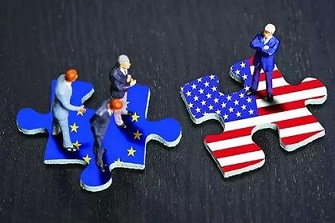
China-US game and China’s revival in the perspective of the comparative strength changes of the two countries
2020-02-25 -
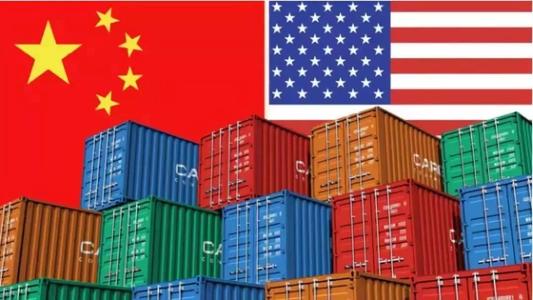
China points tariff exemptions for US imports
China on Friday launched a listing of tax-exempt items from US imports which had been slapped with tariffs within the commerce struggle, paving the way in which for extra purchases of US merchandise amid the unfold of COVID-19, which displays an interdependent commerce relationship, analysts stated. To exempt merchandise from one another, although not a part of the part one commerce deal, was a scheduled transfer geared toward mitigating strain for industries and corporations from each nations, specialists near the deal instructed the World Occasions on Friday.
2020-02-24 -
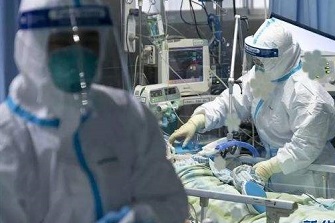
Economic Impact of the Novel Coronavirus Outbreak on China Will Be Temporary
The Chinese government is taking forceful prevention and control measures in response to the recent outbreak of the novel coronavirus, known as Covid-19. The contagion has exerted some downward pressure on China’s economy, but it will not last long. Supported by a resilient economy and ample room for policy adjustments, the People’s Bank of China expects a quick recovery after the outbreak is contained.
2020-02-24 -
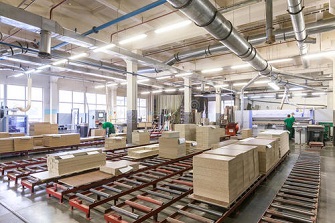
Liu Zhiqin: Virus to move China up global healthcare supply chain
Combating novel coronavirus pneumonia (COVID-19) could trigger an earth-shaking change in the world's healthcare industry supply chain. China is set to expand its supply chain in the healthcare industry. China can be the base camp for this radical reform. The country will become both the producer and market of medical products. Financial services, research institutes and biotechnology development related to virus containment have tremendous market value - China can't pass up this opportunity for a strategic shift.
2020-02-21 -

Ding Gang: Chinese workers’ basic needs push production resumption amid virus fight
The epidemic that broke out in Wuhan has forced the world to examine the relationship between the world's economy and the Chinese economy. As China has become the main engine of world economic growth, the severe challenge brought about by the epidemic has been a heavy blow to the global economy. The latest prediction by Standard Chartered bank shows that when the growth of the Chinese economy dips to 5.8 percent, the world economy will plummet by a tenth of a percentage point, which would result in the loss of tens of billions of dollars.
2020-02-20 -
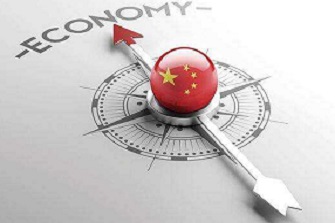
He Weiwen: Virus Economics: Cautious Confidence
The sudden outbreak of the novel coronavirus, COVID-19, caught China totally unprepared just before the Chinese Lunar New Year holiday. China's economy suffered a lot in the epidemi. Interruptions in Chinese supply chains is spreading to other countries, which will influence the global economy. If China has the right policies and pathways, and if it works successfully with the international community, there is a high chance that its economic growth will stay within its trend line over the medium term.
2020-02-20 -
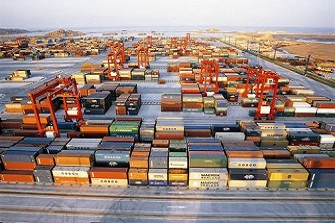
Liu Ying: Epidemic will have limited impact on trade
The novel coronavirus outbreak will impact China's trade in the first quarter of this year. In the short run, the epidemic's impact on China's exports will be larger than that on imports. To cope with the adverse impact of the epidemic on China's economy, the country has launched macroeconomic and fiscal measures to support China's imports and exports. And the global supply chain will rapidly recover in the second quarter as the epidemic is effectively brought under control.
2020-02-19 -
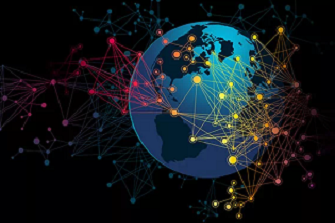
William Jones: Nobody likes a bully
U.S. Secretary of State Mike Pompeo and his sidekick and fellow West Pointer, Defense Secretary Mark Esper, descended on the Munich Security Conference (MSC), like Batman and Robin into Gotham City, to "save" the people from the "evils" lurking around them, in this case China and Russia. "The West is Winning" Pompeo trumpeted triumphantly to what must have been a surprised audience, gathered to discuss how the Cold War was over and that new forms of collaboration between nations had to be established.
2020-02-18 -
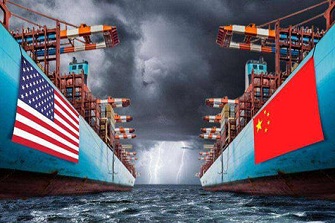
Wang Wen: Too Early To Talk About China-U.S. P2 Trade Agreement
China and the US signed the phase one (P1) trade agreement on Jan. 15, 2020. Additionally, in a recent interview, US Vice President Mike Pence said that negotiations for the phase two (P2) trade agreement are already under way. But in my opinion, the top priority now for the two powers is deciding how to ensure the implementation of the phase one trade agreement.
2020-02-17 -

Wang Wen: China and its Long March: End in Sight? Not Yet
China has entered a new era of development. China now has an impact on the world that is ever more comprehensive, profound, and long-lasting, and the world is paying ever greater attention to China. What path did China take? Where is China going? What are China’s goals in shaping the world? How will China interact with the rest of the world? You can find the answer in the book “The Long March of Becoming a Powerful Country”.
2020-02-17 -
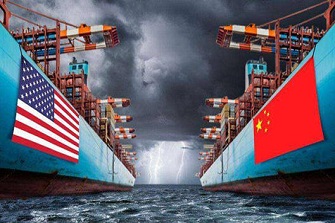
Wang Wen: Too Early To Talk About China-U.S. P2 Trade Agreement
China and the US signed the phase one (P1) trade agreement on Jan. 15, 2020. Additionally, in a recent interview, US Vice President Mike Pence said that negotiations for the phase two (P2) trade agreement are already under way. But in my opinion, the top priority now for the two powers is deciding how to ensure the implementation of the phase one trade agreement.
2020-02-17 -
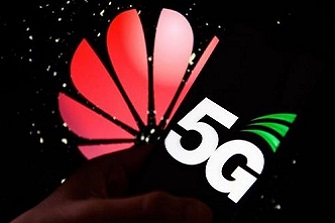
What is behind the UK’s decisive stance on Huawei?
US President Donald Trump was furious when his friend, British Prime minister Boris Johnson, decided to give Huawei a role in building the UK's 5G infrastructure. German Chancellor Angela Merkel seems to be going a similar direction in a position paper announced yesterday. Chinese academic Zhang Jingwei ponders the UK's move and thinks ahead to implications that it may have on the UK's wider relations with China and the US.
2020-02-14 -
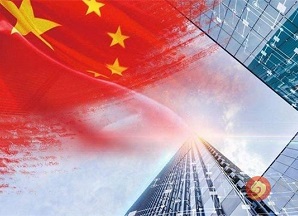
Slawomir Majman: Have confidence in resilience of China's economy
The resilience of China's economy cannot be underestimated. We believe that in the medium and long term, China's economy will manifest a strong revival trend and with the support of the international community, the Chinese nation and their government will ultimately conquer the epidemic and China's economy will remain robust."No country is an lonely island . We have common duties and common destiny", President Xi has said. The epidemic is a great test of the Chinese authorities efficiency but equally a powerful and magnificent test of nations solidarity and cooperation.
2020-02-14 -
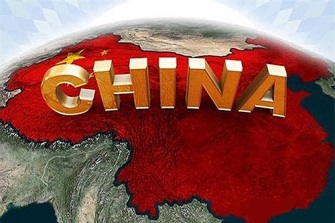
Willism Jones: There's no doubt China will bounce back from epidemic's impact
There has been a great outpouring of sympathy for China throughout the world in the wake of the sudden outbreak of the novel coronavirus pneumonia. But, at the same time, those forces in the West who have been adamantly opposed to the admission of China into the pantheon of world powers, have seen this catastrophe as an opportunity to throw new obstacles in the path of China's rise.
2020-02-13 -
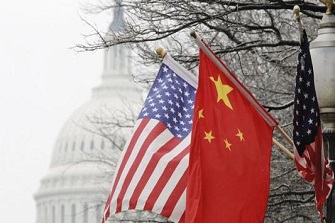
William Jones: Pompeo takes his China-bashing to the National Governors Association
The U.S. Secretary of State deals primarily with issues of foreign policy, requiring a great deal of international travel, but Mike Pompeo is also spending quite a lot of time at home, with the particular goal of warning Americans about the "China threat." Pompeo's campaigning perhaps has other aims as well as he is no doubt considering his options post-Trump administration with his own ambitions at higher office.
2020-02-11 -

Chinese analysts criticize Indonesia's reported import ban, warn against discrimination
Chinese experts close to the government on Monday slammed a reported decision by Indonesia's government to ban imports of Chinese food and beverages due to the coronavirus outbreak, and warned countries against using the epidemic as an excuse for discriminating against Chinese products and companies.China's Foreign Ministry on Monday slammed overreactions from countries, particularly the US, while expressing appreciation and respect toward most countries for enhanced health inspection for Chinese nationals.
2020-02-11 -
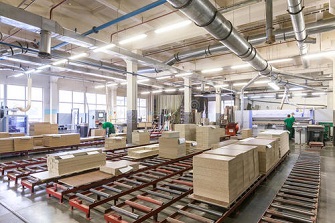
Factories in China should resume operations amid coronavirus fight
Factories and companies in China should resume operations as soon as possible, while making sure there are enough epidemic prevention measures. Equal importance should be attached to fighting the coronavirus and economic growth at this time. Strict measures are necessary to prevent and control the virus, but some regions focus only on preventing the epidemic while neglecting overall economic development, resulting in harm to some industries
2020-02-10 -
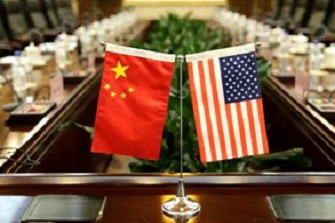
He Weiwen: What does phase one trade deal mean for China's financial market?
China and the U.S. signed the phase one trade agreement on January 15, 2020, after their on-and-off negotiations and tariff escalations that lasted for nearly two years. The phase one agreement is a hard-won achievement, indicating a temporary detente in the bilateral trade relations, providing a relatively stable and predictable environment for coming months. It also suggests a pathway for managing the two sides' differences in the future.
2020-01-17 -
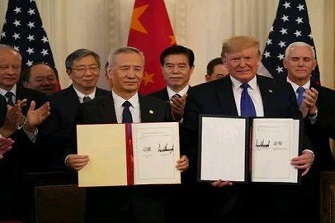
Text of phase one deal balanced, fair
After nearly two years of fighting, Chinese Vice Premier Liu He and US President Donald Trump signed the phase one trade agreement in a lengthy grand signing ceremony at the White House on Wednesday (US time).The phase one trade agreement between China and the US reflected what Chinese officials have long stressed - that any deal must be balanced and fair and include initiatives that, if properly executed, could help address disputes and avoid further confrontation, Chinese analysts said on Thursday.
2020-01-17 -
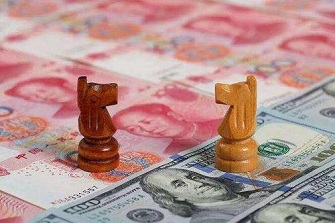
Correcting mistakes a good start for phase one trade deal
A US decision to remove its designation of China as a currency manipulator in an apparent goodwill gesture ahead of the looming phase one trade agreement was met with widespread criticism on Tuesday in China, where many argued that the label was a mistake in the first place.However, the US move also showed signs that Washington is returning to rationality instead of political bullying tactics in the wake of the phase one agreement that could be beneficial to China, the US and the global economy in the long run, some Chinese experts said.
2020-01-16























































































 京公网安备 11010802037854号
京公网安备 11010802037854号





